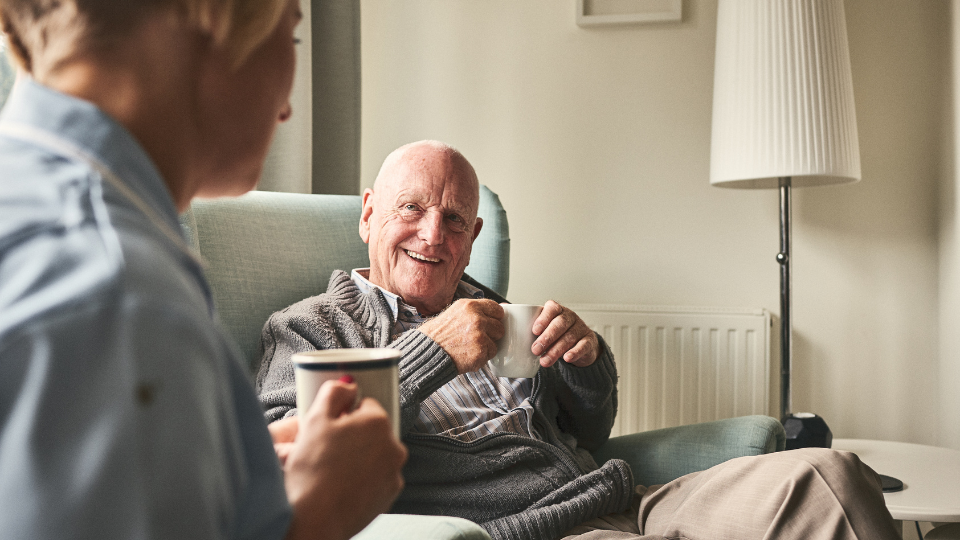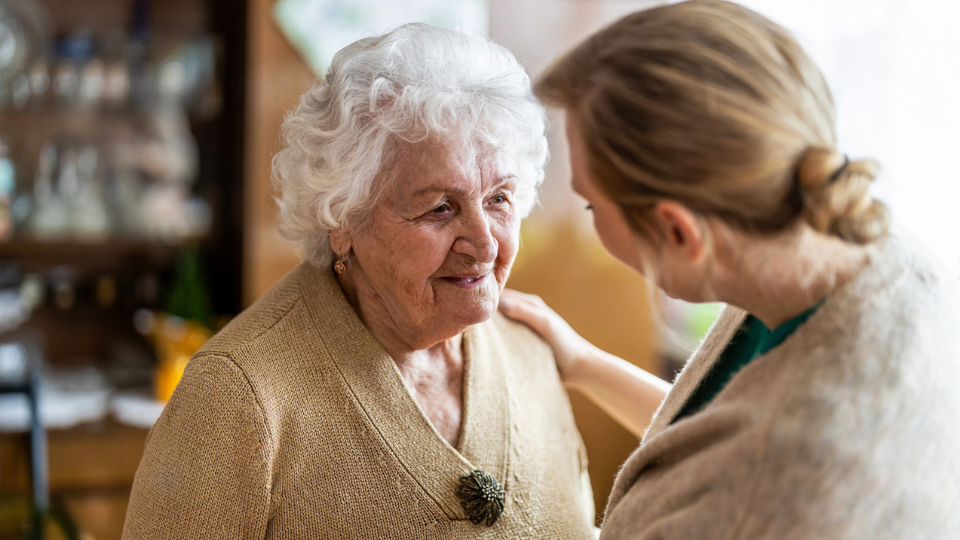

By staying both mentally and physically active through hobbies and socialising, people with dementia can have a better quality of life. It can help them to feel happy and motivated, while preventing them from withdrawing into themselves and away from others.
It's important to note that the activities the person liked before being diagnosed with dementia can all still be enjoyed, but may just need to be adapted to meet their level of ability.
At Priory, we use the Pool Activity Level (PAL) Instrument, which allows us to create a profile of a person’s abilities, likes, dislikes and interests. Our activity co-ordinators then plan activities that are best suited to the people we support. We focus on maintaining the skills and talents that people already have, while giving them the opportunity to develop new interests and activities where possible.
Here are some of the activities that the people we support enjoy, which you could also try when you're supporting someone with dementia:
Household activities
Cooking and cleaning are activities that most of us do every day, which give us a sense of accomplishment. Give the person you care for tasks that are safe and suitable for their cognitive abilities. For example, you may want to get them involved in setting the table, watering plants or folding laundry.
Baking and cooking
Helping someone with dementia to bake and cook can help to boost a their self-worth while reducing any feelings of stress, anxiety or irritability. Get them involved in activities such as measuring, adding and mixing, to make sure they remain safe during the activity.
Arts and crafts
Arts and crafts activities, such as print making, clay modelling, painting, beading and knitting can all help to promote and maintain cognitive abilities. It also supports self-expression and can count as an upper body exercise. If the person previously enjoyed arts and crafts, it helps with their self-worth, while giving them a chance to socialise if it's done as part of a group.
Dance, exercise and movement
Dance can stimulate the brain and body, and also help people meet others. A person doesn’t need to be stood up to enjoy dancing, as it can be done in armchairs. Encouraging circular, repetitive dance moves or even distributing ribbons, balloons or balls, where appropriate, can inspire someone to get moving.
The same can be said for exercise. If a person can stand and walk, try indoor skittles, tai chi or balloon throwing. Armchair exercises like marching, raising the arms and legs, and circling the arms can be good for someone with less mobility.
Getting outdoors
Gardening can give us a sense of purpose, boost energy levels and allow us to socialise with others. Someone with dementia may be able to help plant a raised bed, or a garden container. Also, encourage the person to water plants, and walk around or sit in the garden, enjoying the sights and scents.
Dementia friendly entertainment
Many theatres and cinemas now advertise dementia-friendly screenings and shows, where the lights are dimmed rather then turned off, volume levels are lower and visual markers are used. They can help to improve mood, spark memories and even trigger conversations.
A number of zoos, museums, football teams and fetes are also committed to being dementia-friendly, to make sure that everyone is able to enjoy their favourite activities.
Sensory therapy
Arousing one or more of our senses, whether it’s sound, sight, smell, taste or touch can evoke positive feelings.
Bringing in outdoor objects, such as shells, plants or flowers can generate interest. You may also want to explore different scents, through testing teas, herbs, or essential oils. Trying old fashioned desserts or dishes from different countries can also be a good way to experiment with taste.
Music therapy
Music can be a great mood enhancer that also helps people to express their feelings and connect with others around them. If you're unsure what type of music a person enjoys, create playlist of different genres and singers they may have listened to over the years to get a sense of what they like. Introducing tambourines, other musical instruments or even live music can all boost engagement.
Reminiscence sessions
Encouraging someone to share memories can be a way for them to socialise, strengthen connections with family and friends, and improve their mood.
Choose a positive theme and find relevant photos, mementoes and even sounds. Make sure that you take the opportunity to stimulate the five senses here. Some reminiscence themes to try include summer, winter, the seaside, and pop culture from their youth.
This can either be done on a one-to-one basis or is more commonly done as a group activity.
Bingo
Concentration, co-ordination and short-term memory are all skills that can be reinforced during bingo, while also being a great source of entertainment. You can adapt the game by asking people to identify animals, colours and household objects rather than just numbers and letters.
Contact us to make an enquiry or for more information
If you'd like to find out more about our dementia care homes, which offer long-term stays and respite services, please make an enquiry online or call us today.



